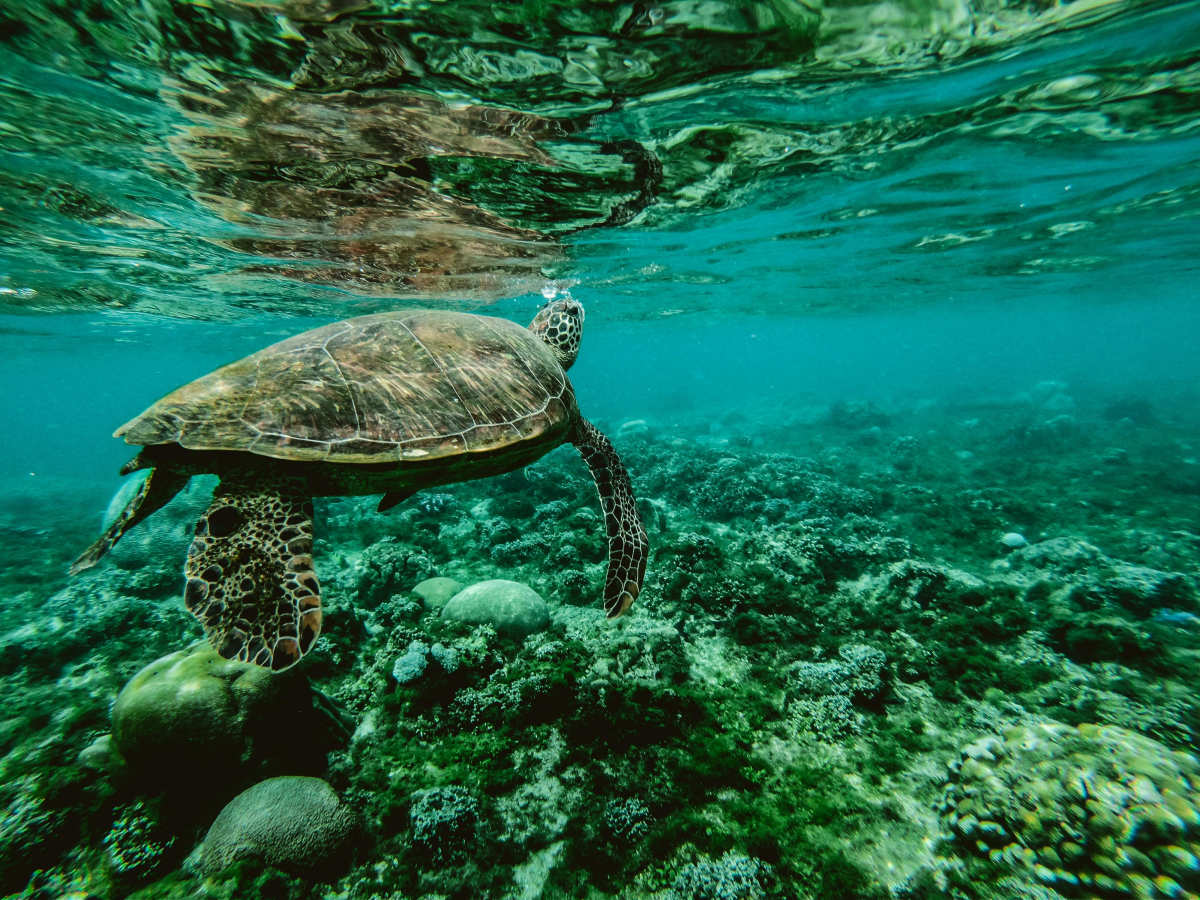Celebrated Marine Biologist David Attenborough at 99 Delivers ‘Greatest Message He’s Ever Told’ in the Ocean Film

Even at 98, renowned filmmaker Sir David Attenborough does not want to slow down his environmental activism. His latest big-screen offering, 'Ocean', is his most recent effort at encouraging governments across the world to protect their ecosystem, stated BBC.

Attenborough claims that the movie is centred around the most important place on Earth, the oceans. He added that the ocean is the planet's greatest ally in protecting itself from climate change. However, this ally needs immediate introspection, because of the destruction it has undertaken over the recent decades.
The documentary is set to release on 8th May, on the occasion of Attenborough's 99th birthday, according to Fosse107. For two years, the marine biologist roamed through the kelp forest, coral reefs, and open seas with crew members. At each of the sites, he explained how oceans were essential to maintaining the planet's balance. Toby Nowlan, one of 'Ocean's' directors, believes the movie would be the broadcaster's hardest-hitting work to date.
Nowlan added that the film is the 'biggest' message ever given by Attenborough in his illustrious career, but ultimately it is one of hope. "There's been a lot of doom and gloom over the last few years - we want the takeaway to be: if we save our ocean, we can make a huge difference for our climate, for our fisheries, for conservation, for food security," the director shared.
In the movie, Attenborough and his collaborators use stunning visuals of nature to shed light on the consequences of harmful fishing practices, according to Wales Online. One sequence focuses on bottom trawling and how the net in this process is dragged across the ocean floor with the help of a metal beam. Camera follows that net as it destroys habitats, disturbs the silt that releases carbon, and captures innocent marine life. The marine biologist reveals how the dangerous practice is still allowed in several protected areas worldwide by governments. Another piece of footage features the 'before' and 'after' visuals of Scotland's Isle of Arran. The site is shown undergoing scallop dredging, and how a few people's greed caused havoc in the entire habitat.
The film does not shy away from presenting the grim reality, but there is also optimism. Attenborough stresses that oceans, with the aid of humanity, can bounce back. The documentary specifically highlights the case of kelp forests off California. Some years ago, fishing was banned in the area, and that resulted in the booming of lobsters, which were facing a dangerous proposition in the region. Apart from marine beings, the recovery of oceans could also help in other facets, like taking carbon from the environment and sequestering it in their depths.
The film claims that if oceans are left to their own devices, they have the power to heal themselves. "The ocean can recover faster than we thought possible," Attenborough said in the movie."If we just let nature take its course, the sea will save itself."
The movie's premiere was attended by King Charles at the Royal Festival Hall in London, according to the BBC. The King was surprised that the celebrated broadcaster will soon be celebrating his 99th birthday. Prince William also attended a matinee show of the documentary along with some school children.